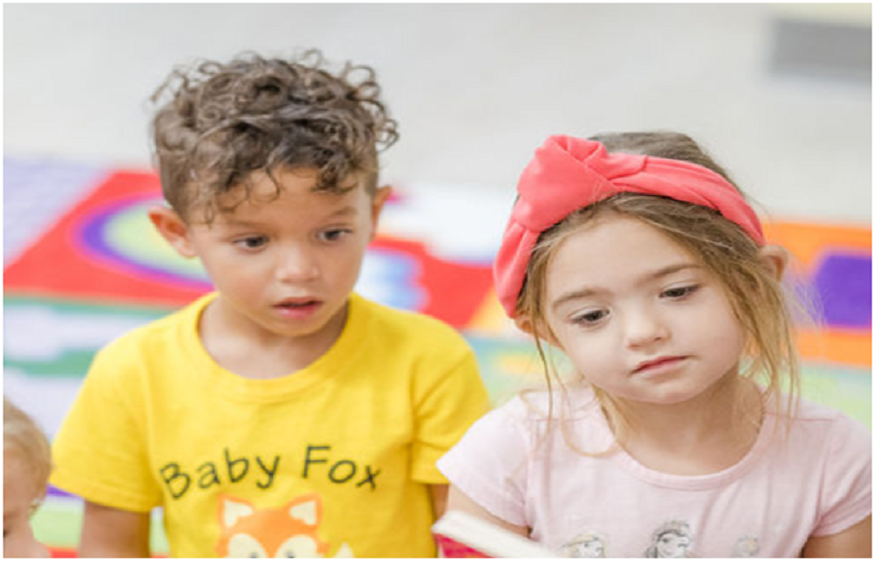When we think about preparing young children for success, it’s easy to focus on academic skills–knowing letters, counting, or even early reading. While these are important, there’s another area of learning that’s just as crucial, if not more so: social-emotional learning (SEL).
Social-emotional education helps children manage their emotions and build healthy relationships. It also helps them make responsible decisions. These skills are important for preschoolers because they will help them in school, with their friends, and beyond.
We’ll look at how SEL can support early childhood development, and why it is so important during the preschool years.
What is social-emotional learning?
Social-emotional education teaches children:
- Recognize your own emotions
- Understanding and empathizing with others
- Communicate effectively
- Manage your impulses and behaviors
- Make thoughtful decisions and solve problems
This could be teaching a child to wait their turn, express frustration verbally instead of throwing tantrums or comforting an upset friend. These behaviors aren’t just nice to have, they’re essential life skills.
Emotional intelligence starts early
The preschool setting is usually the first time a child has been in a structured, social environment. The children are learning how to share, interact, and follow routines. It’s an important transition.
This process is made easier by social-emotional education. Children who are taught to identify their emotions, such as happy, sad or scared, can better express themselves. They learn to express themselves instead of acting out. This is the beginning of emotional intelligence.
Emotional intelligence isn’t all about feeling good. Children with good social-emotional abilities tend to be better at school, have better friendships and can cope with challenges and stress better.
The role of play in SEL
Preschoolers learn through play, and SEL is not an exception. Children are always practicing their social skills, whether it is through pretend play, games in groups, or even simple interactions at clean-up.
Negotiating roles is what two children do, for example, when they decide who will play the role of “teacher” in an imaginary game. A child who invites a buddy to help build a block-tower is learning how to cooperate. They learn problem-solving skills and self-control when they have a disagreement.
Teachers and caregivers can play an important role in helping children to recognize their emotions, and encourage positive behavior.
Long-Term Benefits
Social-emotional growth in preschool is not just beneficial for the immediate future, but also sets children up for success in the long run. The benefits are long-lasting.
- Improved academic performance Children who are able to control their emotions and concentrate on the task at hand tend to be better learners.
- Better relationships: Children who are good at communicating and empathizing with others will be more likely to have friends.
- Resilience : Learn how to deal with disappointment, resolve conflicts, and adapt to changes to build emotional strength.
- Fewer behavior problems SEL reduces outbursts and defiance by teaching better coping skills.
In other words: teaching social-emotional skill in preschool doesn’t mean just being nice or well-behaved. It’s also about giving kids tools that they will carry with them for the rest of their lives.
How Parents can Support SEL at home
Parents can reinforce SEL lessons taught in preschools at home by incorporating simple daily habits.
- Talk about your emotions.
- Empathy and respectful communication are important.
- Applaud efforts to solve problems on your own.
- Create routines to promote safety and consistency.
- Together, read books that explore emotions and social situations.
Even small moments, like sharing your feelings about something or talking about a difficult day, can make a huge difference.
Final Thoughts
In the early years, social-emotional education is not a separate component of the curriculum. It’s at the core of the educational process. Children who learn to manage their emotions, understand others and deal with life’s ups-and-downs are better prepared to face the future.
It is important to develop these skills at a young age, not just for the child’s education but also as a person.
This post was written by a professional at Baby Fox Academy of Florida. Baby Fox Academy, voluntary pre-kindergarten Sarasota, FL, is your premier choice for high-quality early childhood education, blending structured learning with the magic of play. Owned and operated by Laurie and Matt McCracken, Baby Fox Academy benefits from Laurie’s 25+ years of experience in early childhood education. Our play-based curriculum supports every child’s growth, balancing indoor and outdoor activities that build fine motor skills, creativity, language, and independence. With engaging tools like puzzles, dramatic play, and art, children develop essential skills while exploring their world. Parents can check in anytime via secure “Trail Cams” through WatchMeGrow, giving peace of mind while children learn, play, and grow. At Baby Fox Academy, your “baby fox” will thrive in a nurturing environment designed to inspire a lifelong love of learning.

